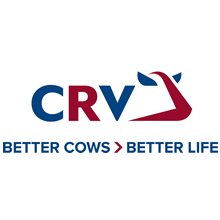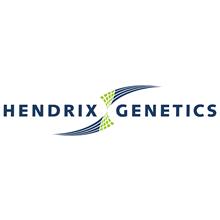Check out our Research projects
Core engine for genomic prediction
Genomic prediction is the state-of-the-art method used for genetic evaluations in modern breeding schemes. Embraced by all Breed4Food partners, genomic prediction evaluations are routinely performed using available phenotypes, pedigree, and genotypes, to provide the latest and most accurate breeding values for selection candidates. Given this crucial role of genomic prediction, and with the increasing amounts of phenotypes and genotypes, this workpackage (WP1) “Core engine for genomic prediction” aims to deliver state-of-the-art fast and reliable statistical methods, that are implemented in MiXBLUP, that is a stable software for very large genetic evaluations.
DNA informed breeding
Genomic selection has enhanced the genetic gain of the breeding programs at all Breed4Food partners. Genomic selection exploits information based on a few percent of variants at single nucleotides (SNP) across the whole genome. However, there is more variation and information in the genome. Advances in genomics and molecular biology, such as massive sequencing and genotyping technologies, offer unprecedented possibilities to get more insight into the effect of specific mutations and functionality of genes. Understanding the biology of the genome is expected to enhance DNA-informed breeding and enable more accurate genomic prediction. Therefore, promising approaches to identify and use the additional DNA information that is becoming available is investigated within WP2 “DNA informed breeding”.
Phenotyping interface
The success of a breeding program depends on the implementation of the most appropriate breeding goal, including consumer and societal demands, and the efficiency in which this breeding goal is achieved. Genomic prediction (WP1) is the core engine of modern breeding programs, which involves software and statistical method developments that are needed to perform state-of-art genomic predictions for an increasing number of genotypes and phenotypic traits.
Genomic breeding program optimisation
The success of a breeding program depends not only on implementing the most appropriate breeding goal, considering both consumer and societal demands, but also to efficiently achieve this. When doing so, it is important to achieve genetic gain while limiting the rate of inbreeding and controlling the costs of the breeding program. The breeding programs of the Breed4Food partners all use genomic selection.
Thus, and important aspect of optimizing their breeding program involves selecting animals to be phenotyped and genotyped.
Ethics & Society
Animal breeding activities are performed in a sensitive domain since it involves animals. Society / the public has views and opinions on applied techniques of breeding companies, and on the outcomes of genetic selection. In this field, also ethical questions for the companies themselves may rise. Breed4Food has initiated a work package (WP5 “Ethics and society”) to address societal and ethical challenges the animal breeding sector is facing. The main aim is to increase societal and ethical awareness of the partner organisations of Breed4Food and to connect more intensively to societal stakeholders.





